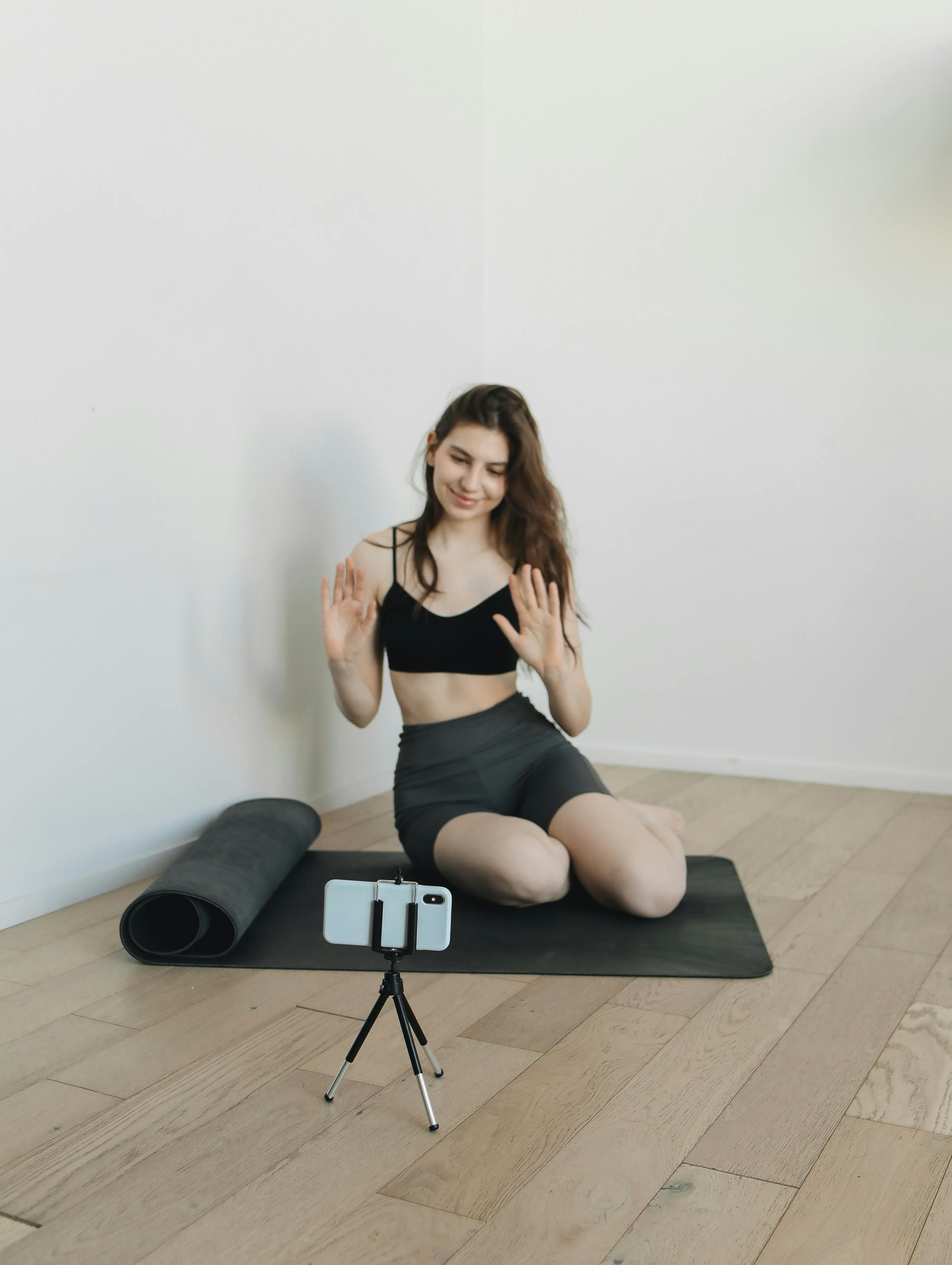Assessing the Authenticity: Is the Influence of Fitfluencers Reliable?
Are you tired of sifting through endless fitness advice on social media, wondering if it's legit? Well, here's a handy guide on how to spot qualified fitness influencers, complete with some major red flags to avoid.
These popular health gurus are all over your apps, sharing workouts, supplements, and more. But can we trust them all? Here's how to tell who's worth a follow and who's best left swiped.
I chatted with Maria Leguizamon, a certified personal trainer and fitness influencer herself, to get the scoop on separating the wheat from the chaff.
So, let's dive straight into filtering the truth from the Insta pics.
Can I trust fitness influencers?
A hot topic, indeed!
The short answer: It's a delicate balance. Cute aesthetic and huge followings aren't always a sure sign of trustworthiness. Instead, focus on results, community, and expertise.
"It's more about observing the results of their advice," explains Leguizamon. "And the commitment to their community, not just as an influencer but also as a professional."
A good influencer is one who not only boasts expertise, but is also passionate and engaged within their followers' sphere—so it's more than about money or follower count.
Red Flags to Watch Out For
When scrolling through fitness content on social media, you'll want to be cautious and ask yourself these questions:
Quick Fix Promises
Is it a workout promising a bubble butt in 2 weeks or 10 pounds shed in a week? Move on. Lasting change, whether it's weight loss or sculpting, always takes time.
Leguizamon says, "When I see some fitness influencers charging insane amounts of money for programs or fitness advice, I question it."
Obvious Danger or Ridiculousness
If the advice seems dangerous or makes you shake your head or raise your eyebrows, take notice. Anothe r example to avoid: dry scooping, the popular but unsafe trend of swallowing a scoop of pre-workout powder with just a swig of water.
Lack of Expertise
Just because someone looks ripped, it doesn't make them an expert. Certified personal trainers, physical therapists, and registered dietitians boast the knowledge needed for sound fitness advice.
So how do you know if they've got the goods? Here are 5 things influencers often get wrong:
1. Form & Proper Breathing
Influencers should provide guidance on proper form to prevent injuries and how to breathe during each movement. Many skip this crucial aspect.
2. Lack of Evidence
Beware of workouts that lack scientific backing. While an image may look appealing, you should verify it was created by a professional—one who truly knows how to design effective routines.
3. "Weightlifting will make you bulky"
Influencers who recommend avoiding weights are misunderstanding the strength-building benefits of weightlifting. To truly bulk up, you'd need to eat an excessive amount of food. Women have female hormones to thank for preventing excessive muscle mass growth.
4. Wild Supplement Claims
Many fitness influencers promote supplements, but be wary of those making grandiose claims. Look for supplements produced in facilities that follow current good manufacturing practices (CGMPs) and are third-party tested for purity and quality.
5. Body Transformations
Avoid idealizing influencers' bodies; they often look different in real life. Bottom line: be skeptical of promises and access their credibility before taking their advice.
Where to Find Trustworthy Fitness Info
So what can you do to find credible fitness advice? Start by checking their qualifications, cross-referencing their advice with other experts, and look for influencers who align with your brand values.
For legitimate resources, consider the American College of Sports Medicine and the American Council on Exercise.
The Bottom Line
Fitness influencers are inevitable, so learning to separate truth from fluff can help ensure you're getting sound advice. Remember: trust is not always equal to likes or followers—it's more about expertise, results, and community involvement.
- Professional fitness influencers can provide valuable advice, but it's important to evaluate their credibility based on results, commitment to their community, and their expertise rather than just their aesthetic or follower count.
- Be cautious of fitness influencers who promise quick fixes, as lasting change takes time and effort. Additionally, be wary of anyone who promotes unsafe practices, lacks scientific backing, misunderstands weightlifting benefits, makes grandiose supplement claims, or fails to provide guidance on proper form and breathing.
- To find trustworthy fitness information, cross-reference an influencer's advice with other experts, check their qualifications, and ensure they align with your brand values. Legitimate resources for fitness information include the American College of Sports Medicine and the American Council on Exercise.








